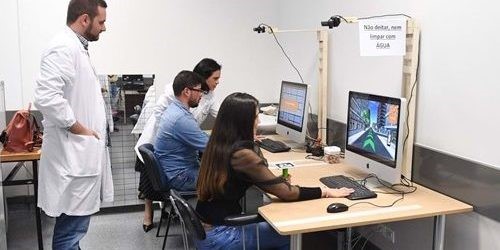Jean Claude Fernandes
Madeira Island Portugal
https://www.sesaram.pt/portal/
jeanclaudefernandes@sesaram.pt
Our Physical Medicine and Rehabilitation department is part of SESARAM the Regional Health system of the Madeira Islands https://www.sesaram.pt/portal/. We have a close collaboration with the research group of the University of Madeira MITI (Madeira Interactive Technology Institute) in their development of virtual rehabilitation technology. Since 2019, the partnership between SESARAM and MITI allowed the development of a cognitive rehabilitation program using innovative technology that is validated, non-invasive and low cost. The program is part of a multidisciplinary personalised treatment of patients with sub-acute acquired brain injury. Currently, we have a maximum capacity of treating sixteen patients per year and aim to expand this in the near future. The virtual reality component of our program includes rehab-city, rehab-task and rehab-task-generator. The theme behind rehab-city is a virtual city in which the patient goes to specific places (e.g.: supermarket, ATM, post office, amongst others) and is confronted with problems to solve (ex: in the supermarket, after choosing items from a list, receipts are shown of which he/she must choose the correct one). Rehab-task consists of cancellation tasks of symbols, figures, letters and numbers which train attention and visual memory. Rehab-task-generator is an online generator of pencil and paper cognitive tasks used for daily individual exercise plans at home. The VR systems aid in the systematic and graded training of different cognitive domains adjusted to the patient´s capacity with the advantage of multi-sensorial feedback. Apart from occasional glitches the VR systems work well, although there is need to develop more domain specific cognitive games. We continue to collaborate with MITI, not only in the development of cognitive VR technology as well as the use of VR in motor recovery with the use of Brain Computer Interfaces (BCI), treatment of phantom pain for amputee patients and technology in aid of speech therapy. The progress we have had would not be possible if it wasn´t for the combined effort of research and clinical personal finding innovative ways to solve problems and improve patient care.
(Article from the ISVR Newsletter Issue 20)

